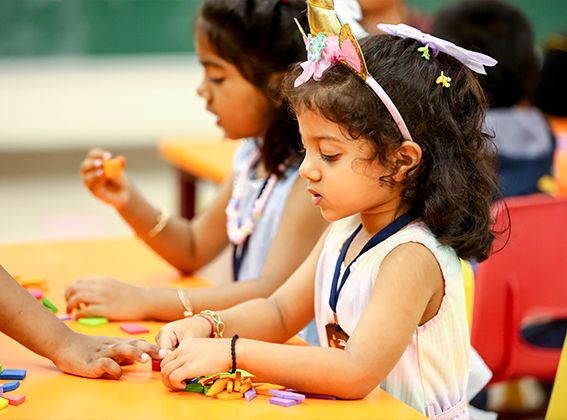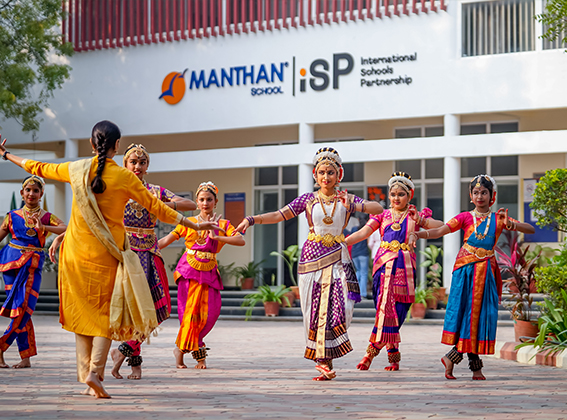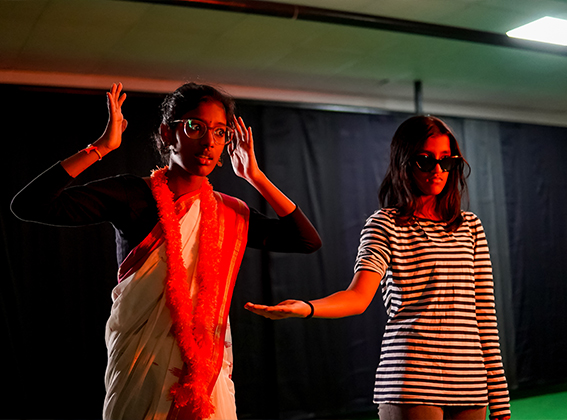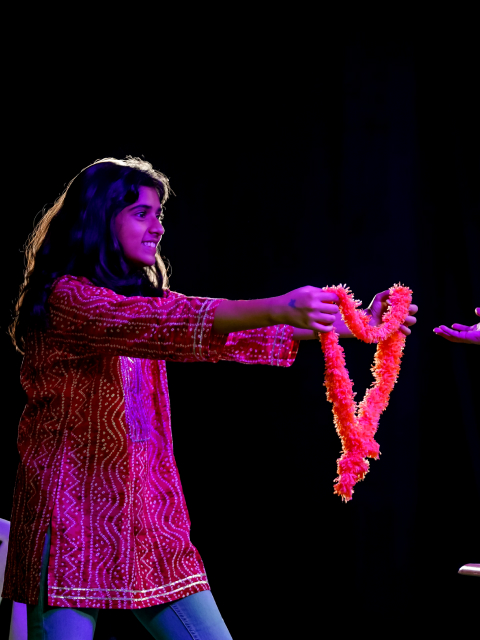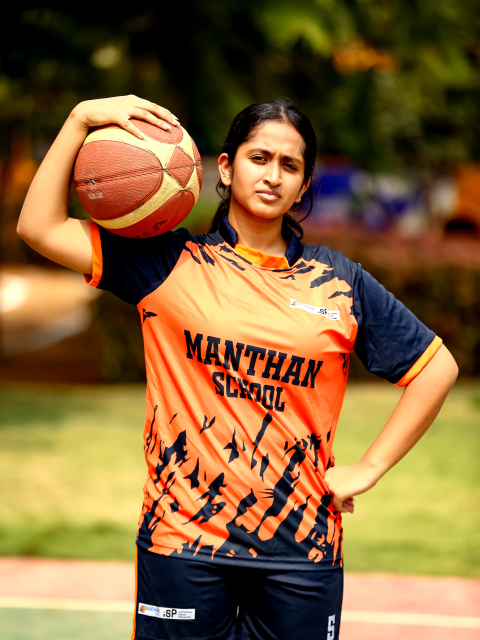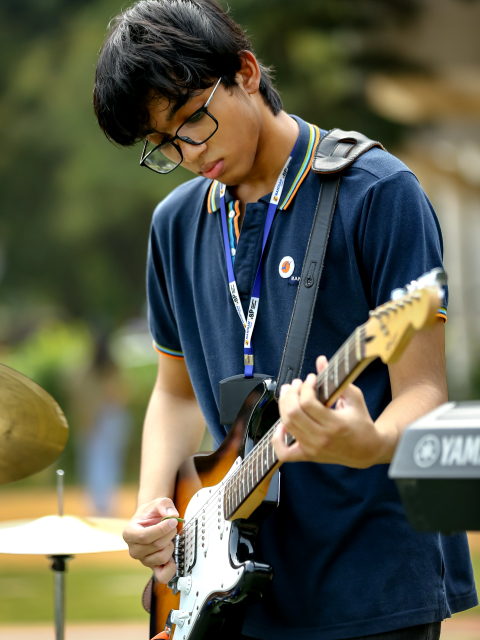Exploring Creativity: Extracurricular Offerings at Manthan
As part of holistic development, Manthanities develop their creative talents across four key mediums – art, craft, music, and drama. With the help of educators, students learn to express themselves, inspire creative thinking, and experiment with new ways to achieve excellence in their respective fields.
Art
For pre-primary and primary students, art classes are mandatory. They learn the fundamentals of drawing, sketching, shading, and painting. Middle and high school students can delve deeper through the ‘Art and Craft’ club. Club members get assignments and are encouraged to exhibit their artwork.
Craft
For pre-primary and primary students, craft classes are mandatory. Middle and high school students can delve deeper through the ‘Art and Craft’ club. Club members get assignments and are encouraged to exhibit their creations.
Art & Craft Club
Art & Craft Club students learn the basic principles of drawing, sketching, shading, painting, and constructing intricate figures. As they master these fundamentals, the focus shifts to more advanced techniques. Students can showcase their creativity through various mediums, such as print, paint, sculpture, and pottery. Their creations are sometimes displayed and sold as part of Manthan’s community outreach initiative, with the revenue collected going towards charitable causes supported by the school.
Dance
Dance helps students mature physically, cognitively, emotionally, and socially. At Manthan, we create various opportunities for students to express themselves through a range of dance genres.
Dance is a mandatory part of the pre-primary and primary students’ curriculum. Middle and high school students can choose to continue learning more advanced forms and choreography techniques by becoming members of the Dance Club. Students of all ages showcase their talent during festival celebrations, events, and assemblies.
In the Dance Club, qualified teachers focus on various dance elements, body movements, and expressions and provide students with in-depth training. Club members also prepare to participate in inter-school events and have a successful track record of participating and winning in solo and group competitions.
Music
Our Music rooms are well-equipped with keyboards, drums, guitars, harmonica, computer and music systems. Music classes are a part of younger grade students’ daily schedules, allowing them to unwind and express themselves. Children showcase their skills through melodious musical performances during assemblies, festival celebrations, or on the annual day.
Music Club members of Middle and High Schools learn their chosen instrument or music genre in great depth. They are encouraged to compose their pieces and perform at different school events and interschool competitions.
With access to fully-equipped music rooms, students in the Music Club can learn and play instruments such as drums, guitar, keyboard, tabla, dholak, daphli, and more. Teachers take into account each student’s level of expertise and encourage them to compose music and form a school band. The band performs at all school events.
Theatre
Theatre is introduced in Grade 4 to build students’ confidence, tackle stage fright, and become comfortable with public speaking. It is often an integral part of language classes to help students improve their vocabulary and to use the language in everyday situations.
The various activities introduced in the drama class aid their learning and enhance soft skills such as observation, memory, voice and speech modulation. The students also learn about teamwork, characterisation, control of body movements, role-play, forms of expression, and problem-solving methods. Theatre also provides students with a different perspective which helps them tackle different subjects in academia.
For example, an explanation or a lesson can be understood through theatre techniques. Such integration between subjects allows learners to get a more well-rounded experience. Students often perform skits during assemblies. A lot of the material used in theatre classes is derived from their other academic classes. Middle and High School students can choose to pursue their interests in the performing arts by being part of the Theatre Club.
In the Theatre Club, students perfect their stage skills, explore topics beyond the classroom, and read world plays and dramas. Club members meet weekly to discuss and learn new aspects of theatre production and rehearse for cultural events at the school and state levels.
FAQ’s
1. What is the teaching methodology followed at The Manthan School?
Additionally, our lessons are designed with differentiated learning in mind, ensuring that the diverse needs of students with varying cognitive abilities are met. By tailoring instruction to accommodate different learning styles and mental capacities, we create an inclusive environment where every student can thrive and reach their full potential.
2. What are the academic programs and curriculums offered?
For those opting for the CBSE curriculum, students will sit for the national board examinations at the end of Grade 10 and Grade 12. Alternatively, students who choose the Cambridge pathway will take the internationally recognized IGCSE exams at the end of Grade 10, followed by AS Level exams in Grade 11, and A Level exams in Grade 12.


